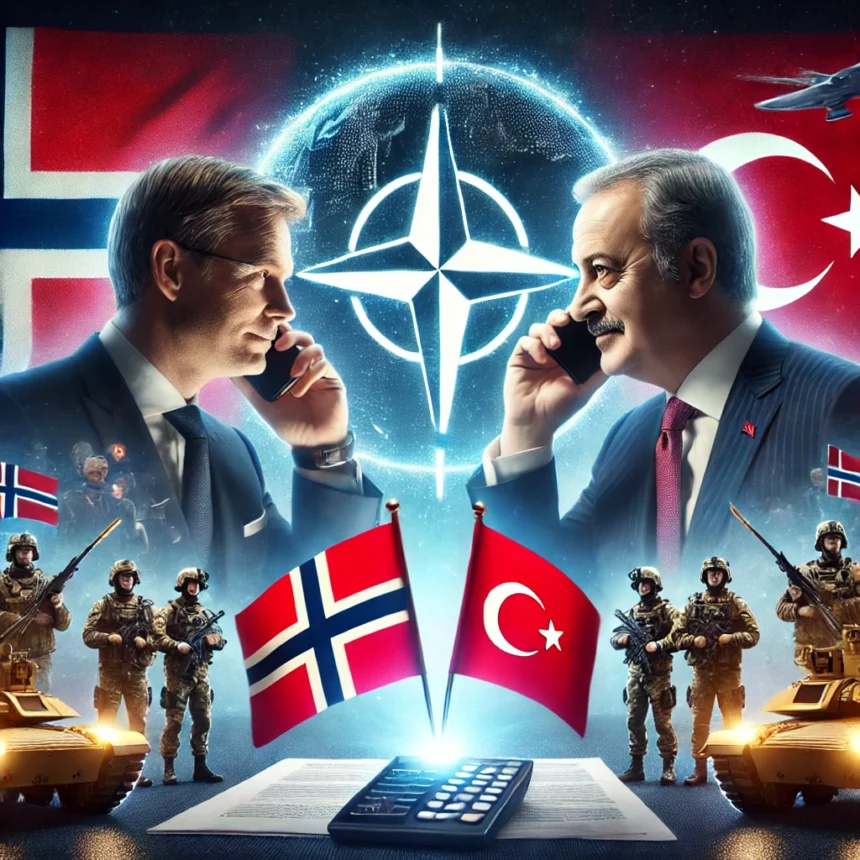Norway announced on September 11, 2024, that it would relax its restrictions on the transportation of defense products to Turkey, a significant departure from its stance in 2019. Norway, along with several other European states, implemented restrictions on the quantity of arms that could be supplied to Turkey in response to Turkey’s military offensive in northern Syria at the time. Erdogan’s military operation, Peace Spring, was focused on the Kurdish-led Autonomous Administration of North and East Syria (Rojava). The Kurdish Workers’ Party (PKK) has been designated as a terrorist organization by the United States of America, the European Union, and the Turkish government. Simultaneously, Turkey regards the Rojava as being linked to the PKK.
Several European governments denounced the offensive due to the potential destabilization of the region and the impact on Kurdish forces, which had been essential allies in the war against ISIS. Consequently, Turkey and some of its NATO members experienced strained relations following the offensive. Norway and other nations responded by suspending the provision of new weaponry to Turkey in response to the involvement of European-made military hardware in the conflict. This action was indicative of their apprehensions about the function of military hardware manufactured in Europe.
Norway and Turkey’s decision to resume defense exports after a five-year hiatus is indicative of a thawing in their relationship. Norway has eliminated the restrictions that were implemented in 2019, as stated by the Norwegian Ministry of Foreign Affairs. The country will resume its “ordinary licensing practice” for defense materials and dual-use products that are intended for military use in Turkey. Norway furnished this information. The North Atlantic Treaty Organization (NATO)’s comprehensive architecture necessitates that countries maintain cooperative defense cooperation, which is consistent with the restoration of normal export policies. The strategic significance of Turkey in NATO is primarily due to its geographic location and its role as a significant component in regional security. This action underscores Turkey’s continuous relevance within the alliance. Turkey’s historical significance within the alliance is particularly underscored by this action.
The lifting of restrictions has resulted in a significant diplomatic victory for Turkey. The Minister of Foreign Affairs, Hakan Fidan, expressed his satisfaction with Norway’s decision, emphasizing that the ethos of cooperation among NATO partners was not reflected in such limitations. This sentiment was officially conveyed by his spokeswoman, Öncü Keçeli, which reaffirmed Turkey’s conviction that the limits were incompatible with the country’s principles of mutual defense cooperation and alliance. It is conceivable that the decision will be perceived as an acknowledgement of Turkey’s consistent stance within NATO and the broader geopolitical changes, including Turkey’s evolving foreign policy and security priorities.
Turkey is concurrently pursuing a defense strategy that is more autonomous and pursing collaboration with significant allies, in addition to the fact that this normalization is occurring within a broader environment. In the past few years, Turkey has been striving to reduce its dependence on foreign weaponry imports and diversify the sources from which it obtains its military supplies by expanding its domestic defense sector. As a result, Norway’s action has the potential to contribute to the restoration of some of the military and industrial cooperation between the two countries, which had been restricted by the embargo.
Norway’s decision may suggest a willingness to support the alliance’s objectives of improving collective defense in a more comprehensive NATO context, given Turkey’s ongoing importance as a member. This is particularly accurate in light of Turkey’s continued membership. The current tensions in the region, which include the conflict in Ukraine, concerns over the influence of Russia, and instability in the Middle East, may prompt members of NATO to reevaluate the importance of maintaining robust military and defense cooperation with Turkey.
The lifting of the embargo has provided Norway’s defense sector with new economic opportunities. The resumption of arms trade with Turkey may be facilitated by these opportunities. Norway, a producer of dual-use products and high-tech military equipment, may perceive this as an opportunity to enhance its supply of critical defense materials to NATO members.
The normalization of arms sales from Norway could provide Turkey with supplementary resources to bolster its military operations in the region. Furthermore, this would guarantee that Turkey’s defense requirements are in harmony with the production of armaments within the nation.
In summary, Norway’s decision to abolish the restrictions for 2019 is significant from both a diplomatic and strategic perspective. Norway is serving as a trailblazer in the re-establishment of consistent defense cooperation, which is indicative of a potential recalibration of relations between Turkey and its European NATO partners. This is due to Norway’s take on the initiative. This new development underscores the ever-present centrality of Turkey within the NATO alliance, while also emphasizing the evolving nature of military cooperation and defense commerce among member nations. This decision has the potential to facilitate further reconciliation and collaboration in defense matters between Turkey and other European nations, which is especially critical in light of the persistent challenges to regional security.



